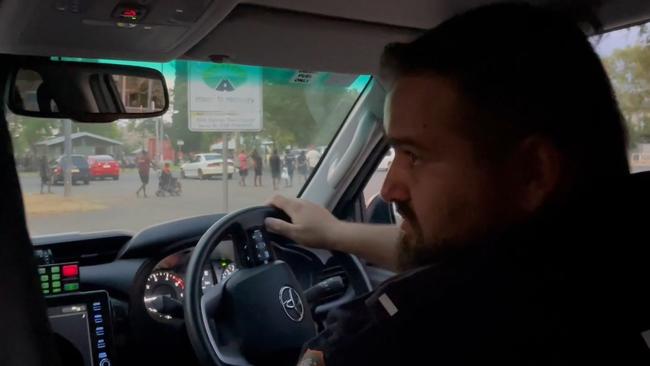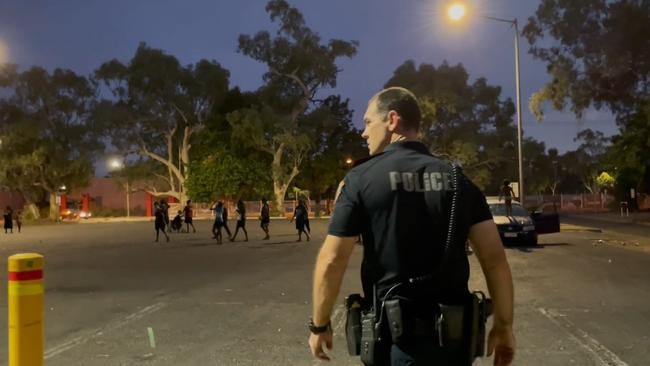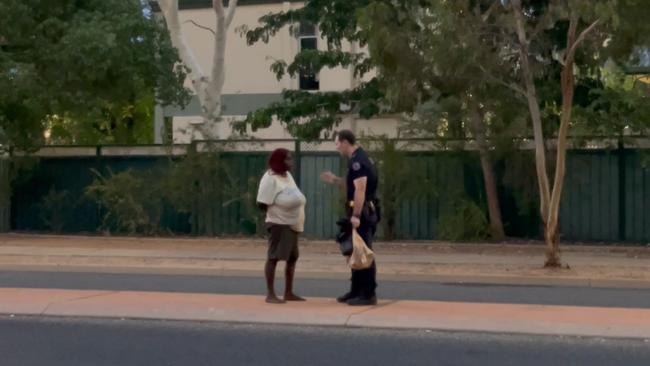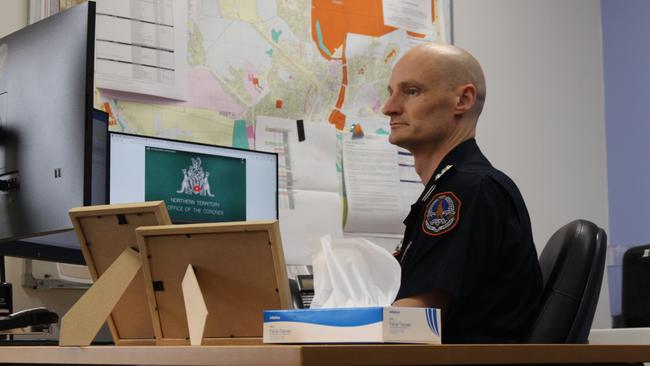NT News goes on the beat with NT Police’s Community Safety and Engagement Team in Alice Springs
When the NT News joined the NT Police’s Community Safety and Engagement Team on the streets of Alice Springs, it didn’t take long for things to turn ugly.

Police & Courts
Don't miss out on the headlines from Police & Courts. Followed categories will be added to My News.
It’s approaching dusk on a Thursday evening in Alice Springs and Constable Bradley Lynch and Aboriginal Community Police Officer Luke Hoey are on patrol as part of NT Police’s Community Safety and Engagement Team (CSET).
As the radio crackles, jobs start filtering through: An out of control taxi, a caucasian male “described as being very high”, reportedly walking down the road with a metal pole “trying to fight people and trying to attack people’s dogs”.
But those jobs will be left to “general duties” officers tonight, with CSET’s focus squarely on the sort of anti-social behaviour that has thrust Alice Springs into the headlines for all the wrong reasons.
Before long, the officers spot a group of drinkers on the hospital lawns and swing into action, tipping out cans of alcohol and trying to move the group on.
But pretty quickly things turn ugly, with several intoxicated members of the group taking exception to being filmed by the NT News.
They respond by pushing, shoving and grabbing at the camera.
Then the projectiles start flying.

After a few hairy moments and a lot of angry shouting, the crowd eventually disperses and the rest of the evening is relatively uneventful, with officers Lynch and Hoey later retreating to the station to do paperwork.
No charges were laid.
Roughly 24 hours later, the NT News sits down with Drew Slape, currently Acting Commander in charge of the Territory’s south, and soon to be Superintendent of the Alice Springs police station.
Mr Slape says while there is “no single panacea” in reducing crime, “alcohol does play a significant role”.
“You do see a reduction in crime when you have a reduction in the supply of alcohol,” he says.

But he says another factor is the state of housing in the Red Centre’s Aboriginal town camps, where many of those who were moved on the previous night likely reside.
“I think probably one of the main issues that we see is overcrowding, particularly with people moving around and we see an ingress of people over the holiday periods from surrounding communities into Alice Springs to access services,” he says.
“So as a result, you have a swell of people coming into town, you have more people living under the same roof.”
Some members of the group the night before were drinking and some alcohol was tipped out, but until disturbed, no one appeared to be causing any trouble, so it begged an obvious question.

What did moving them on really achieve in circumstances where the only place to go is overcrowded housing that’s named as one of the root causes of out of control domestic violence and youths running amok on the streets?
In response, Mr Slape says it’s important to remember “that the consumption of alcohol in a public place is against the law”.
“So a standard policing practice is when people are committing offences in a public place is to move them on so there’s not continuation of an offence,” he says.
“However, what I would say is that every circumstance is different, it needs to be judged on its merits and the individual officers who are responding to situations like that are best placed to make those decisions.”





